Unit 3.4: Baroque/Northern Renaissance
1/14
There's no tags or description
Looks like no tags are added yet.
Name | Mastery | Learn | Test | Matching | Spaced |
|---|
No study sessions yet.
15 Terms
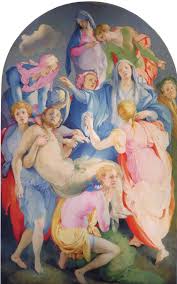
Entombment of Christ
Artist: Jacopo da Pontormo
Period/Movement: Mannerism
Medium: Oil on wood
Location: Florence, Italy
Significance: chaotic figures, constant movement, stylized, elongated, mannerism: unnatural complex compositions
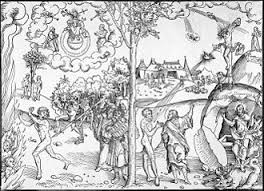
Allegory of Law and Grace
Artist: Lucas Cranach the Elder
Period/Movement: High Renaissance North
Medium: Woodcut and letterpress
Location: Germany
Significance: propaganda during Reformation, meant to show two points of view (right: protestants, left: catholics), recurring patterns on both sides
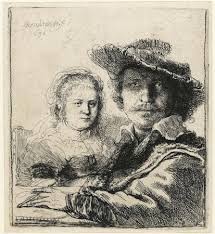
Self-portrait with Saskia
Artist: Rembrandt van Rijn
Period/Movement: Dutch Baroque
Medium: Etching
Location: Amsterdam
Significance: printmaking—mass distribution, shows a husband and wife, tribute to his wife who passed in her 20-30s, chiaroscuro (light and dark)
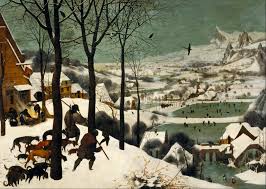
Hunters in the Snow
Artist: Pieter Bruegel the Elder
Period/Movement:
Medium: Oil on wood
Location: Netherlands
Significance: part of a six-panel scene of different times in the year, shows daily routines (captures struggles and joy of winter season),
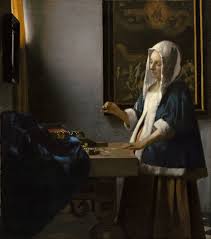
Woman Holding a Balance
Artist: Johannes Vermeer
Period/Movement: Dutch Baroque
Medium: Oil on canvas
Location: Netherlands
Significance: genre scene, domestic realm, balance— The Last Judgement, Vermeer’s power of illusion, mirror: material wealth, camera obscura: a tool that reflects light to show an image (depicts early forms of photography)
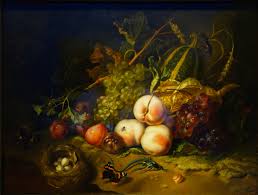
Fruit and Insects
Artist: Rachel Ruysch
Period/Movement: Dutch Baroque
Medium: Oil on wood
Location: Florence, Italy
Significance: still life, vanitas: still life genre reminder of mortality: suggestion of temporary nature, microscopic organisms
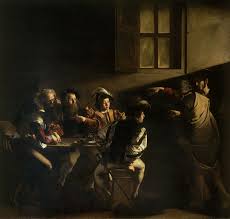
Calling of Saint Matthew
Artist: Caravaggio
Period/Movement:
Medium: Oil on canvas
Location: Rome, Italy
Significance: tenebrism— diagonal light (symbolizing holy spirit, unusual setting for Jesus, Jesus walks into a bar and points to Matthew (a disciple of Jesus → the saints were common people)
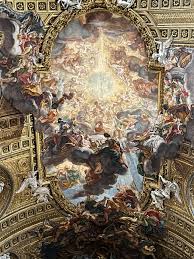
Il Gesú
Artists: Giacomo da Vignola, Giacomo della Porta, and Giovanni Battista Gaulli
Period/Movement: Baroque
Medium: Ceiling fresco
Location: Rome, Italy
Significance: volutes, rounded pediments, curvilinear, facade— to give the illusion as if building is much bigger, gold detail, plastered murals, suggests classical architecture
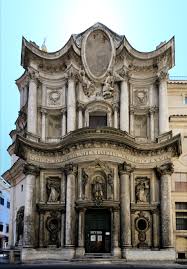
San Carlo alle Quattro Fontane
Artist: Borromini
Period/Movement: Italian Ba
Medium: Stone and stucco
Location: Rome, Italy
Significance: based on an abstraction of the cross-shape; Greek cruciform but more abstract, dedicated to Saint Carlos, built in columns, high relief
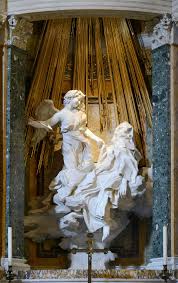
Ecstasy of Saint Teresa
Artist: Gian Lorenzo Bernini
Period/Movement: Baroque
Medium: Marble (sculpture), Stucco and gilt bronze (chapel)
Location: Cornaro Chapel: Rome, Italy
Significance: dramatic, exaggerated, drapery, angel and Saint Teresa, gold arrow toward Saint Teresa, union of the world, Bernini's comeback after his scandal with mistress
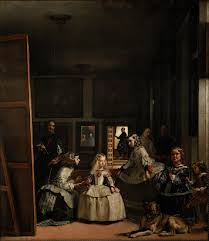
Las Meninas
Artist: Diego Velázquez
Period/Movement: Spanish Baroque
Medium: Oil on canvas
Location: Madrid, Spain
Significance: use of mirrors, artist portrait, infanta: princess/future of Spain, dog= loyalty, non-religous, genre scene
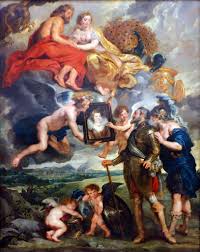
Henri IV Receives the Portrait of Marie de’ Medici
Artist: Peter Paul Rubens
Period/Movement: Flemish Baroque
Medium: Oil on canvas
Location: Belgium
Significance: Part of Medici Cycle: show Medici achievements, Christian imagery, nude women (god(dess)) — modesty doesn’t apply, allegorical figure: Marie is the symbol of France, political power, Henry IV presented the picture of Marie
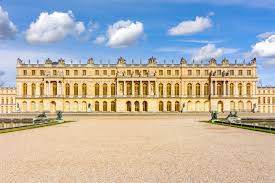
The Palace at Versailles
Artist: Louis Le Vau and Jules Hardouin-Mansart
Period/Movement: French Baroque
Medium: Masonry, stone, wood, iron, gold leaf (architecture); marble, bronze (sculpture
Location: Versailles, France
Significance: symmetrical, gardens, lots of rooms, very elongated, VERY baroque (gold), King Louis XIV decided to build a new palace → example of nobility
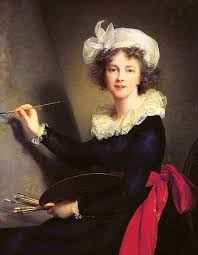
Self Portrait
Artist: Elisabeth Louise Vigée Le Brun
Period/Movement: Rococo-Neoclassicism
Medium: Oil on canvas
Location: Florence, Italy
Significance: painter for Marie Antionette, shows her skills, women could only do women portraits, portrait of her smiling → not common to see a smile (Elisabeth encouraged her models to smile)
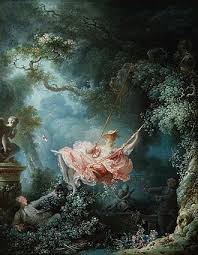
The Swing
Artist: Jean-Honoré Fragonard
Period/Movement: Enlightenment/Rococo
Medium: Oil on canvas
Location: France
Significance: Rococo (Baroque + extra!), man (chaperone) who is pulling the swing with ropes (older), NOT carefree -- more scary/dark/unknown, Fragonard style— maiden in garden, cupid whispering that man below is her lover